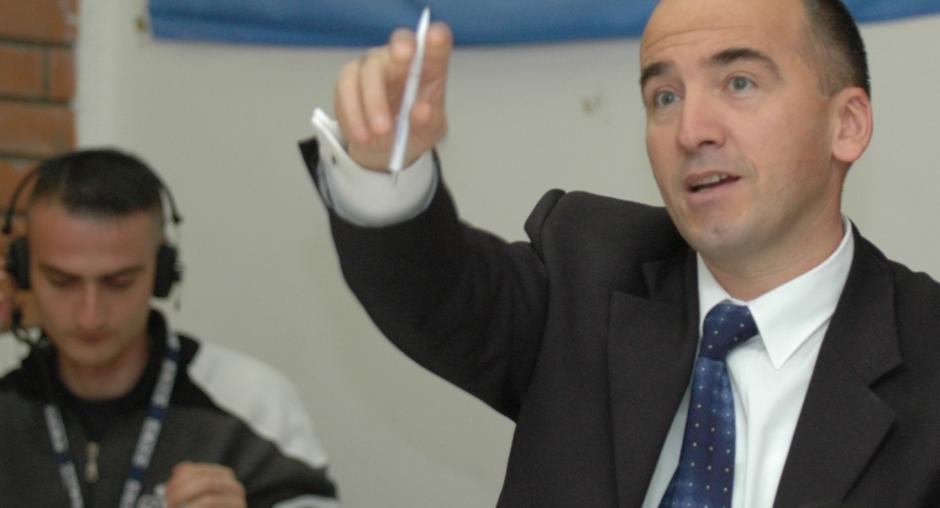Kosovo Mission strengthens negotiation skills ahead of status talks
Preparing for status talks
In October 2005, OSCE Chairman-in-Office and Slovenian Foreign Minister, Dimitrij Rupel, urged Kosovo's leaders to prepare for upcoming negotiations on the future status of Kosovo.
The talks will involve at least three parties: authorities from Serbia and Montenegro and from Kosovo will sit on either side of the negotiating table, while the UN will facilitate.
After the violent break-up of former Yugoslavia, NATO intervention and the establishment of a UN interim administration, these talks are expected to be very demanding and often contentious, requiring much patience from the parties involved.
Leaders from Kosovo, however, may feel more pressure because they have had little experience with high-level diplomatic negotiating. To prepare for the talks, Kosovo representatives are getting help from the OSCE Mission to enhance their negotiation skills.
Participants of the workshops, which have been held throughout October and November 2005, include representatives from Kosovo's Assembly, ministries and political parties.
Focus is on strategy, not content
Franklin de Vrieze is a Programme Officer at the Mission working on central governance support programmes. He says that the workshops do not deal with the content or political aspects of the status talks. "Instead, they focus on the theory of negotiating, strategies and tactics, the role of a third party and assessing the feasibility of implementing certain settlements.
"We are also trying to find ways of including ethnic minorities in the negotiation process," he adds.
The US-based Fletcher School of Law and Diplomacy and the Public International Law and Policy Group (PILPG) are delivering the training programme.
Effective communication
The sessions encourage participants to communicate and co-operate effectively, using case studies and simulation exercises. "Even simple simulations can have a huge impact on team-building," says Eileen Babbitt, a Professor at the Fletcher School.
The programme emphasizes that good communication involves clear instructions and objectives, and an awareness of the group as a whole.
"It is vital to anticipate the other parties' requests during negotiations, and the needs behind these requests. They can then explore options to meet those needs without necessarily giving up their own position," says Babbitt.
Negotiators' handbook
As a practical guide for the talks, the Mission has produced a handbook based on the training sessions. It covers issues likely to arise during the discussions, including mechanisms to protect cultural sites and historic monuments, constitutional guarantees for minority representation, and monitoring by an international civilian presence.
"The handbook analyses the language used in other peace agreements and summarizes their political contexts," says Jennifer Ober of PILPG.
With the workshops behind them and the book in their hands, Kosovo's leadership will be better equipped to meet the practical and political challenges of the status talks. How negotiators will apply their skills and knowledge remains up to them.

